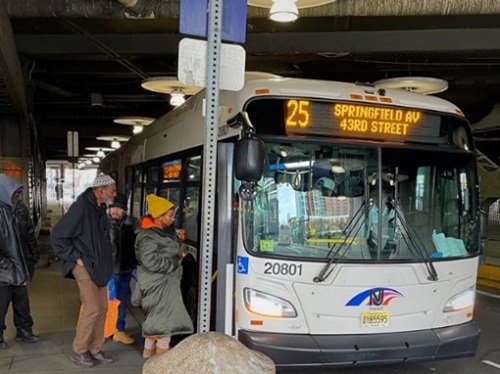The Federal Transit Administration recently issued a notice of funding opportunity for nearly $1.7 billion in discretionary grants to support state and local transit fleet modernization efforts as well as to support transit workforce development programs. Applications are due by April 13.
[Above photo via the FTA]
This funding opportunity engages two major FTA programs, the agency said. The first is its Low or No Emission (Low-No) program, which helps transit agencies buy or lease U.S.-built zero-emission and low-emission transit buses along with charging equipment and supporting facilities. The $1.2 trillion Infrastructure Investment and Jobs Act or IIJA, enacted in November 2021, provides $5.5 billion over five years for this program, with approximately $1.22 billion will be available for grants in fiscal year 2023.
The second is the FTA’s Grants for Buses and Bus Facilities program, which supports transit agencies in buying and rehabilitating buses, vans, and related equipment as well as constructing bus facilities. The IIJA provides nearly $2 billion over five years for the program. For FY 2023, roughly $469 million in grant funds are available via this program, FTA said.
Finally, the agency noted that those grant funds will also go towards workforce training and development programs aimed at helping “upskill” transit maintenance personnel on new clean bus technologies. Consequently, five percent of each grant for zero-emission projects must be used for workforce development and training, the agency said.
“Buying new buses, including many vehicles that use new technology to fight climate change, will promote cleaner, faster, and safer rides as we move toward a better future,” said FTA Administrator Nuria Fernandez in a statement. “We will be able to connect more people in their communities and improve the reliability of transit service.”
In August 2022, FTA announced the first round of selections for both its Low-No and bus facility grant programs, which the agency said should put roughly 1,800 new American-made buses on the roads, with over 1,100 of those using zero-emissions technology.

